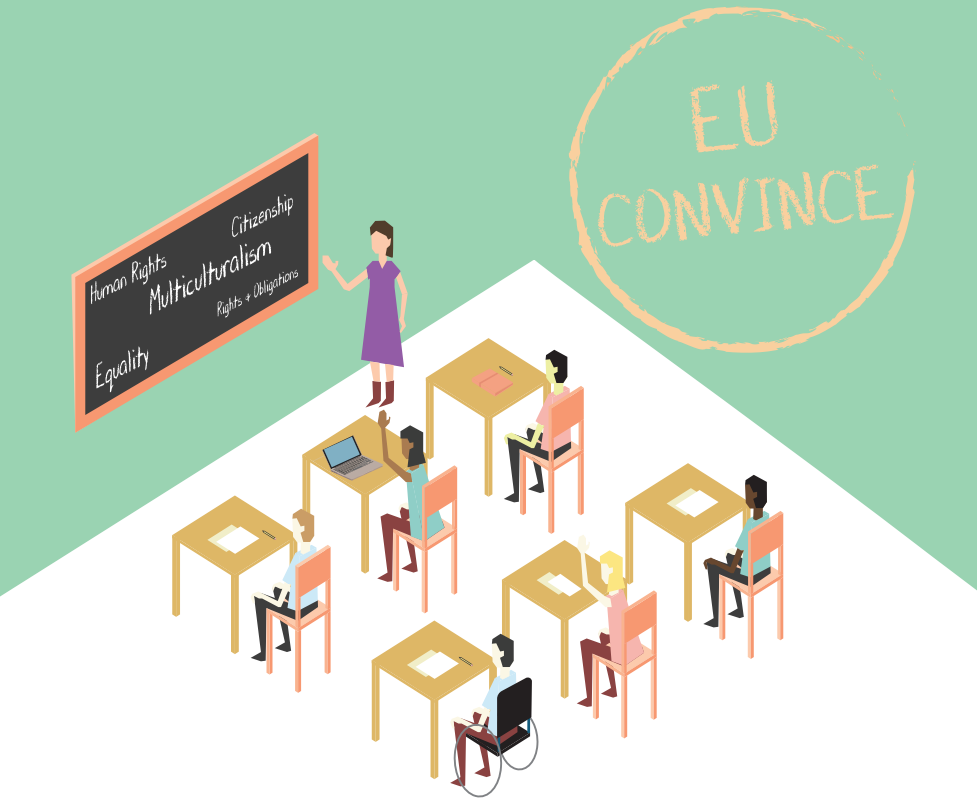How can we build inclusive schools in diverse societies?
Published:
A carefully built inclusive learning environment is the basis of education which meets the needs and interests of all learners and education personnel regardless of their background. As the student population and wider society grow increasingly diverse, a variety of challenges emerge for schools, teachers, school leaders, other education personnel and employers in education. A new ETUCE-EFEE-ESHA joint statement on Inclusive Schools Within the Context of Diverse Societies outlines five key elements.
The statement has been prepared as part of EU CONVINCE, a joint project on democratic citizenship and EU common values carried out by ETUCE, EFEE and ESHA. It builds on our recently published research report ‘Challenges and good practices related to promoting citizenship and values of freedom, tolerance and non-discrimination through education’, also produced within this project. The report highlights the importance of a supportive policy frameworks for democratic citizenship and inclusion in education, which should be developed through meaningful and effective social dialogue and collective bargaining at European, national and local level.
The EU CONVINCE project partners underline that inclusive education must remain high on the EU agenda through the implementation of relevant European and international frameworks. The statement is envisaged to contribute to the implementation of the Council recommendation on Promoting common values, inclusive education, and the European dimension of teaching.
Five elements are essential for inclusive education, starting from the students’ earliest age:
1. Safe physical, social and emotional learning environments where the freedoms of opinion and expression are respected.
2. Teachers and other education personnel who are prepared and supported in managing the diversity in the school and intercultural dialogue, including the teaching of controversial and sensitive issues.
3. School leadership committed to creating an enabling, supportive learning and teaching environment and democratic school governance.
4. Education authorities with a holistic perspective on education systems which entails the integration of every person in society and preparing learners to be active and responsible citizens in a socially and economically diverse world.
5. The involvement and full commitment of all relevant stakeholders, including school partners and social partners, to maintain inclusive schools and promote diversity, mutual respect and intercultural dialogue in education.
The new statement will also serve, alongside the EU CONVINCE project partners’ earlier joint statement on Education for Democratic Citizenship & EU Common Values (2018), as the basis for discussion at the final project conference in Warsaw, Poland, on 14-15 November 2019. At this event the project partners will explore further implementation of the principles set out in the two statements.
The statement is published in English, French, German, Spanish and Russian and is available for dissemination here.